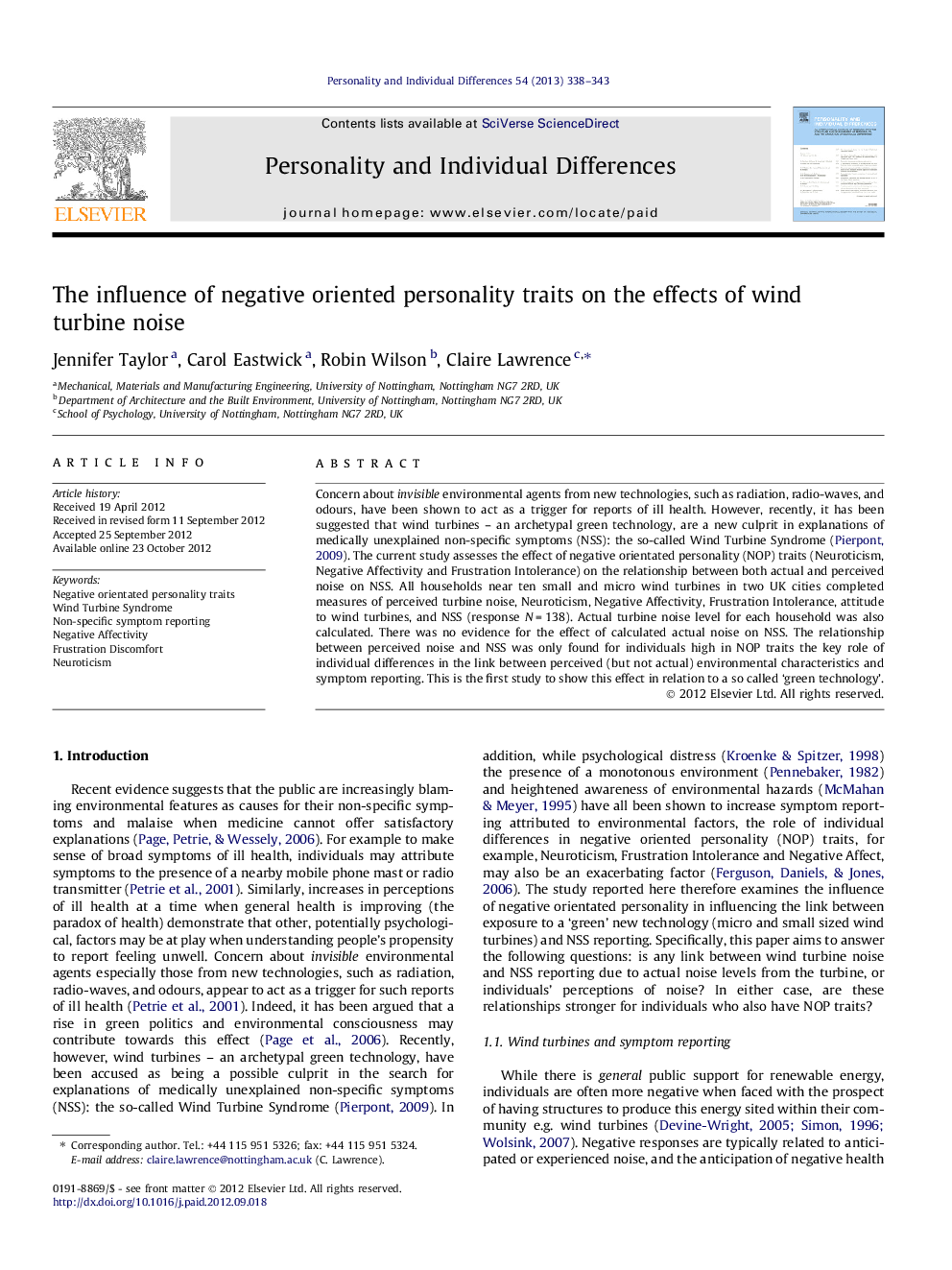| Article ID | Journal | Published Year | Pages | File Type |
|---|---|---|---|---|
| 891230 | Personality and Individual Differences | 2013 | 6 Pages |
Concern about invisible environmental agents from new technologies, such as radiation, radio-waves, and odours, have been shown to act as a trigger for reports of ill health. However, recently, it has been suggested that wind turbines – an archetypal green technology, are a new culprit in explanations of medically unexplained non-specific symptoms (NSS): the so-called Wind Turbine Syndrome ( Pierpont, 2009). The current study assesses the effect of negative orientated personality (NOP) traits (Neuroticism, Negative Affectivity and Frustration Intolerance) on the relationship between both actual and perceived noise on NSS. All households near ten small and micro wind turbines in two UK cities completed measures of perceived turbine noise, Neuroticism, Negative Affectivity, Frustration Intolerance, attitude to wind turbines, and NSS (response N = 138). Actual turbine noise level for each household was also calculated. There was no evidence for the effect of calculated actual noise on NSS. The relationship between perceived noise and NSS was only found for individuals high in NOP traits the key role of individual differences in the link between perceived (but not actual) environmental characteristics and symptom reporting. This is the first study to show this effect in relation to a so called ‘green technology’.
► Study examined effects of wind turbine noise in community sample. ► Perceived noise from wind turbines is associated with increased symptoms. ► This effect only occurred for those high in negative orientated personality traits. ► Actual noise from turbines was not related to symptom reporting.
